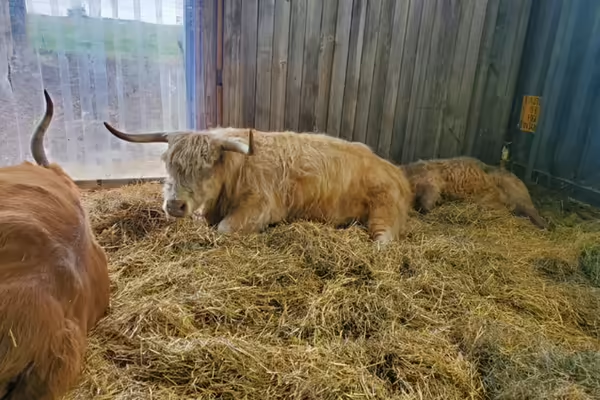
OREGON, Ill. - Have you ever wanted to see a beekeeper in action? Or pick your own apples and berries? Join us for this free, family-friendly event that will satisfy your local food cravings and curiosity!
On Sunday, October 13, from 11 a.m. to 4 p.m., the University of Illinois Extension will host the Ogle County Farm Stroll, a self-guided driving tour of highly diversified family farms open to the public on one big day. There will be farm tours, demonstrations, and fresh local food samplings and sales. Please dress according to the weather; it will take place rain or shine.
The farms participating in this year's Farm Stroll are Barnhart’s Stone Corner, Berry View Orchard, Dietrich Ranch, Happily Homegrown, Hough’s Maple Lane Farm, and Orion Organics.
See farm-raised cows, organic fruits and vegetables, pigs, and more. One of the farms is full of antique farm equipment and farming history. How does the stroll work? Choose which farms you want to see and create your route using the map and brochure. This is a free event, but bring cash to stock up on local, farm-fresh products.
Follow Ogle County Farm Stroll on Facebook for up-to-the-minute information, brochures, maps, and spotlight features on each farm at https://www.facebook.com/northernilfarmstroll/. View the event flyer here: https://go.illinois.edu/2024OgleCountyFarmStrollflyer. Contact the Ogle County Extension office at 815-732-2191 with any additional questions or if you need reasonable accommodation to participate in this program.
University of Illinois Extension develops educational programs, extends knowledge, and builds partnerships to support people, communities, and their environments as part of the state's land-grant institution. Extension serves as the leading public outreach effort for University of Illinois Urbana-Champaign and the College of Agricultural, Consumer and Environmental Sciences in all 102 Illinois counties through a network of 27 multi-county units and over 700 staff statewide. Extension’s mission is responsive to eight strategic priorities — community, economy, environment, food and agriculture, health, partnerships, technology and discovery, and workforce excellence — that are served through six program areas — 4-H youth development, agriculture and agribusiness, community and economic development, family and consumer science, integrated health disparities, and natural resources, environment, and energy.